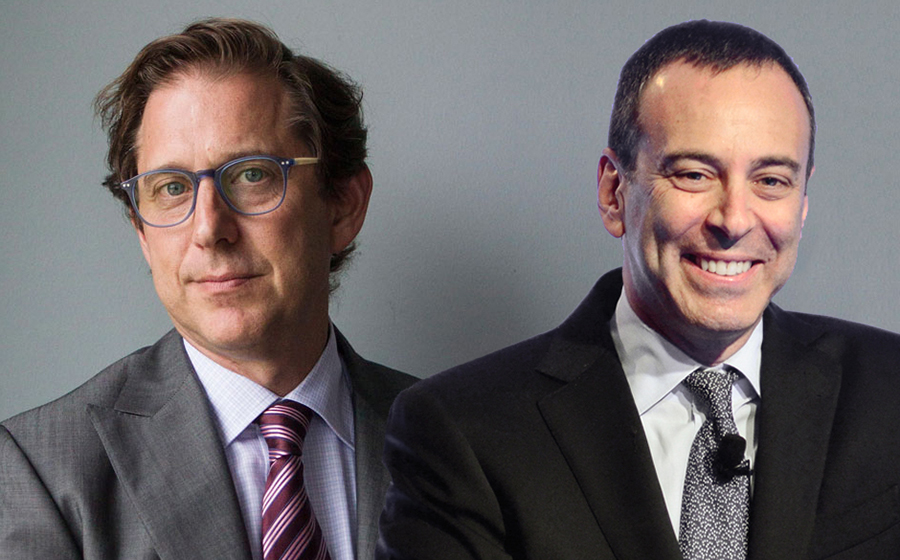What does Eddie \”fast buck\” Lampert have to do with this? Before I get to the significance of the title of this article and HBC\’s \”go private plan,\” I stated in an article way back in 2014 that Richard Baker is a brilliant real estate mogul and that Eddie \”brilliant financier\” Lampert should hire him.
A bit of tongue-in-cheek, I said \”Now that Eddie \”sell the assets\” Lampert is turning his dying retail business into a real estate play, he should retain Richard Baker as a consultant. If Lampert can afford him. Of course, Richard doesn\’t need the money, so he might do it out of the goodness of his heart. While nobody ever questioned Eddie\’s financial engineering skills, he is now at the 11th hour before bankruptcy or outright liquidation of the Kmart and Sears\’ businesses. The only asset he has left to squeeze more cash out of is the real estate. With that in mind, Baker\’s brilliance in real estate would come in handy. Here\’s his story. In Canada, Baker sells the Zeller\’s chain for a huge premium of $1.8B to Target. This is akin to Target getting whacked in the head with a sandbag. More recently Baker gets an appraisal on Saks 5th Avenue for a whopping $3.7B, making it the most valuable retail building in the world. Just to give some context, it was reported to be worth between $1B and $2B when he bought it a couple years ago.\” Geez!!! This guy is something else.
And a year earlier I wrote \”Hudson Bay – Saks – L&T: Real Estate or Retail.\” I speculated that as the Sears and HBC retail businesses continued to tank, Baker and Lampert would default to each of their excellent skill bases: financial engineering under Lampert and real estate and M&A deals under Baker.
My prediction of Lampert\’s shift from saving the retail business to financially leveraging asset value (brands and real estate) is in fact, playing out. Baker from the get-go has kept to his original dual strategy of appointing a CEO with the expertise and skills to run the retail businesses while he would create and grow the value of their real estate assets. And boy he did go on an acquisition spree. Following his purchase of Hudson\’s Bay, L&T and Saks Fifth Avenue, he acquired Galerie Kaufhof in Germany and opened Hudson\’s Bay stores in the Netherlands. And then he hired Jerry Storch as the CEO to run the retail businesses. Without going into great detail, Storch\’s tenure resulted In a wobbly retail enterprise at best, but flatlining to diminishing growth is probably a more accurate description when he left the company.
Fast forward to a WWD CEO Summit in October 2017 where we heard Mr. Baker discussing the retail environment: \”Being a retailer, that is too tough. Man, that is tough. The second business we are in is the real estate business. That\’s not as tough. It\’s a place where we can make a lot of money.\”
Was this Mr. Baker\’s \”Lampert moment?\” Was this when he began to think of defaulting to his core skills as a real estate and M&A mogul? Was it the beginning of his de-emphasis on the retail business as a losing proposition? Perhaps, at least in his own mind (and publicly unspoken) it was his moment to manage the retail business down and out while selling the real estate assets (à la Lampert).
New Leadership
We do not yet know. But enter Helena Foulkes in February 2018 as the new CEO following Storch. Coming from a top position at CVS where she excelled as a change agent and led its transformation, she knows a thing or two about consumers and strategy. She\’s a Harvard Business School and London School of Economics grad. Foulkes also ranked 12th on Fortune Magazine\’s 2017 Most Powerful Women in Business list and was one of Fast Company\’s Most Creative People in Business, the same year. In 2018, the NRF named her one of the leaders Shaping Retail\’s Future.
I only throw those creds out there as indicators that she does have the chops to figure out what needs to be done to stabilize the business, how to do it and finally, how to implement the strategies to get it done. The caveat: if, and it\’s a big if, she gets the time and the capital necessary to accomplish such a turnaround. And at the end of the day, will Richard Baker provide the capital and time to get it done?
Early into her new role, I met with her and in my opinion, I do believe she is a true change agent. She was totally aware of the complex and giant challenge she faced, and at the time, expressed that she and Baker were on the same page agreeing that the required investment in time and capital would be committed to righting the retail enterprise.
So, back to Mr. Baker and his publicly proclaimed intention to charge ahead focused on the original dual retail and real estate strategy. One would tend to believe that intention, given his new \”go private plan.\” Just as Nordstrom attempted to privatize its business to get out of the glare of Wall Street and the demands of \”short-termers\” so they could buy the time and commit the capital required for transformation, Baker stated the same reason for wanting to take HBC private. In a recent letter to the chairman of a special committee of independent directors, Baker cited the need for \”significant capital investment to execute its strategy, and the high degree of uncertainty in the retail landscape.\” Thus, his plan to sell Gallerie Kaufhof, possibly L&T and other assets.
Now back to Ms. Foulkes. She called the plan \”an exciting milestone\” and a \”bold action\” that will allow the company \”to fully focus our resources on HBC\’s North American operations, including our best growth opportunities – Saks Fifth Avenue and Hudson\’s Bay.\”
On the other hand, she said there are \”no sacred cows.\” Reading between these lines, cost-cutting, consolidation of the organization, store and space shrinkage, etc. are on the top of her priority list. In other words, she needs to stabilize the business to a turnaround point sufficiently enough to put the business on a growth trajectory.
Behind the Curtain
So, what is all this really about? Is it Richard Baker defaulting to, and focusing primarily on real estate dealings, and possibly squeezing cash out of a dying retail business, à la Lampert? Or will he support his new CEO, providing the promised time and capital necessary to transform the retail enterprise back to health and future growth?
The slow roll of Lampert\’s systematic management of Sears decline began over 15 years ago. And it has not yet gone \”poof\” into the night. By gravity alone, it takes multibillion-dollar businesses a long time to die. In any case, if Baker really means what he says about getting the capital necessary to go private so the retail business can buy the time to be re-energized, then my bet is on Foulkes to make it happen.





